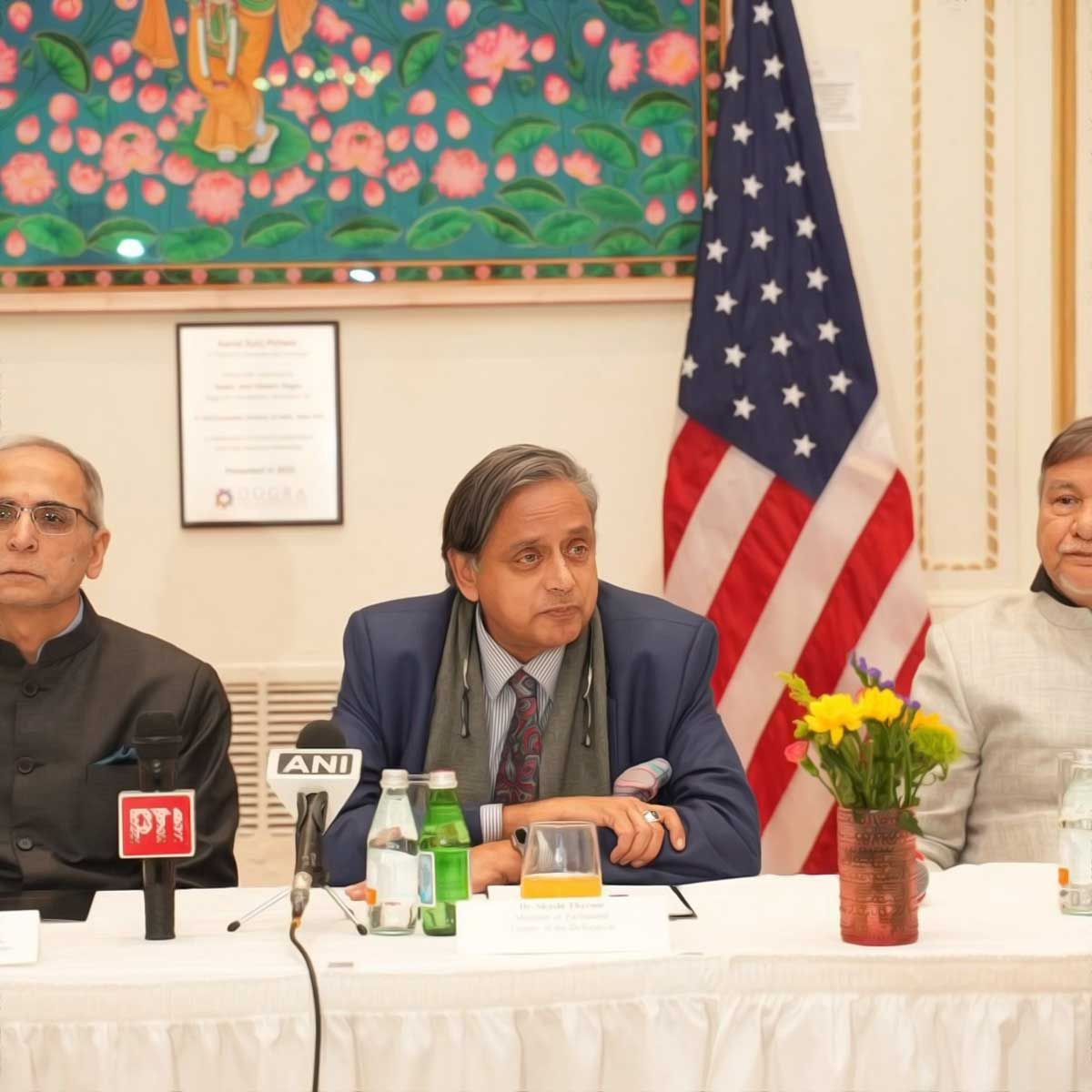More Coverage
Twitter Coverage
Satyaagrah
Written on
Satyaagrah
Written on
Satyaagrah
Written on
Satyaagrah
Written on
Satyaagrah
Written on
JOIN SATYAAGRAH SOCIAL MEDIA
"हो, मुहंजो खट्टी आयो खेर सां हो जमालो" | Dive into the tale of 'Hojamalo', a Sindhi folk song born from bravery that celebrates Jamalo Sheedi's fearless act on the Lansdowne Bridge, blending history with melody in a tribute to courage & cultural heritage

Let's delve into a historical marvel intertwined with the captivating tale of the 'Ho Jamalo' song. We're talking about a bridge, not just any bridge, but a feat of engineering that has its roots deeply embedded in the pages of Sindhi folklore. This bridge is no ordinary structure; it's an iron giant known as the "Lansdowne Bridge." While the locals of Sukkur affectionately call it the “Ayub Bridge,” it stands majestically between the small cities of Sukkur and Rohri, with the mighty Indus River flowing gracefully underneath.
|
Constructed in 1889 by the British government, the Lansdowne Bridge was a testament to the incredible technological advancements of that era. "This bridge was proof of the undoubted technology of modern engineering at that time." Imagine this beautiful historical bridge suspended in the air, supported by massive iron chains - a sight to behold and a symbol of human ingenuity.
The financial aspect of this grand construction is just as impressive. "At that time, the cost of expenditures of construction on this bridge was 40,00,000 Pakistani rupees," a staggering amount that reflects the scale and ambition of this project. It wasn't just a bridge; it was a monument to progress and human capability.
However, this architectural marvel came with its share of fears and myths. "The certified historical truth is that when the Iron Giant Bridge assembled on the Indus River, Every railroad driver did not agree to drive a train on this bridge." Drivers were terrified at the thought of steering their locomotives across this pillar-less bridge. The fear was palpable – a fear of collapsing into the river below, a fear that gripped the hearts of even the most courageous.
"Because It was without pillars, railroad drivers were frightened of death." Their worst nightmare? That the weight of the train would be too much for the bridge to bear, leading to a catastrophic collapse. This fear of the unknown, of this pioneering engineering feat, held them back. The bridge, while a symbol of progress, also became a symbol of fear and uncertainty.
In this tale, now enters Jamalo Khoso Baloch, also known as Jamalo Sheedi, whose life in Sukkur during the British East India Company’s rule was anything but ordinary. Born under colonial shadows, Jamalo's life took a dramatic turn when he found himself at the mercy of the company's harsh justice system. "At some point, he was sentenced to hanging by a company officer, and was held in a jail near what was then the newly constructed Sukkur Bridge."
But fate had other plans for Jamalo. In a twist straight out of a thriller novel, an opportunity for redemption presented itself in the most unexpected way. The East India Company, seeking a brave soul to test drive a train across the Sukkur Bridge, found their unlikely hero in Jamalo. His courage shone bright as he volunteered for the perilous task, with one daring condition: "His only condition was that he be completely pardoned when the job was done."
As Jamalo embarked on this daring adventure, suspense hung in the air. "As Jamalo took the train across the bridge, there is rumoured to have been some nervy scenes, with the bridge sinking by nearly 4.5 inches when the train was near the midpoint of its course." The bridge, groaning under the weight of the train, created a heart-stopping moment. Spectators must have held their breath, watching in awe and fear as Jamalo steered the train over the teetering bridge.
Miraculously, in what seemed like a scene from a miraculous escape, the bridge, though strained, held its ground. "Despite what must at the time have seemed like certain disaster, the bridge somehow managed to settle at the 4.5 inch dip and Jamalo made his way across." Jamalo's bravery turned him into a folk hero, a symbol of resilience and daring.
But the story doesn't end there. The joy and relief that followed this successful yet harrowing journey were immense, especially for Jamalo's wife. Overwhelmed with happiness and gratitude, she expressed her emotions in the most melodious way possible. "It is said that Jamalo’s wife was so relieved at his safe return, she composed the 'Ho Jamalo' song in jubilation of his safe return." This song, born out of love and relief, has since echoed through generations, immortalizing Jamalo's courageous act and becoming a beloved part of Sindhi folklore.
The tale of 'Ho Jamalo' is more than just a song; it's a testament to love, bravery, and the spirit of survival. It's a captivating story that dances on the strings of history, resonating with the rhythm of a thrilling adventure and the melody of profound relief.
The Enchanting Melody of 'Hojamalo'
In the heart of Sindhi culture lies a song as beautiful as it is historic. A melody that sprang from a wife's heart, filled with relief and joy, celebrating her husband's triumphant act of bravery. This isn't just any song; it's a musical chapter in the tale of Jamalo Sheedi and the Lansdowne Bridge. In her native tongue, Sindhi, she composed a song that resonated with every beat of her relieved heart.
The lyrics of the song, 'Hojamalo', are as simple as they are profound. "Ho muhanjo khatti ayo Kher saan ho Jamalo" (my beloved husband won the task hojamalo), she sang, her voice a mix of jubilation and love. "Ho, jeko Rohri wari pul San ho Jamalo" (On the bridge at Rohri, hojamalo), the song continued, narrating the story of her husband's daring journey. "Ho jeko Sukkur wari pul ta hojamalo" (This bridge belongs to Sukkur also), the song concluded, binding Jamalo's act and the bridge in a rhythmic embrace.
What started as a personal expression of joy transcended boundaries, turning into a melody that echoed far and wide. "Over time, the song has become famous throughout Pakistan." From the banks of the Indus River to the bustling streets of Pakistan's cities, 'Hojamalo' found its way into the hearts of many. Its rhythm and words became synonymous with celebration, courage, and love.
But the song's journey didn't stop within the borders of Pakistan. "In addition to its fame in Pakistan, it has become a traditional Sindhi folk song that has spread across the world as well." Its melody crossed oceans, reached distant lands, and touched the hearts of Sindhis and music lovers worldwide. The tale of Jamalo and the Lansdowne Bridge, woven into this song, became a universal symbol of bravery and love.
Today, in the age of digital connectivity, 'Hojamalo' is just a click away. "You will be delighted to hear this song on Google search or YouTube, if you search for it." This song, born from a moment of daring and relief, continues to inspire and entertain, bridging past and present, fear and triumph.
The story of 'Hojamalo' and the Lansdowne Bridge is more than history; it's a living, singing testament to human spirit and resilience. It's a story that dances on the strings of folklore, resonating through time, reminding us that from acts of courage, beauty often blooms.
 |
 Support Us
Support Us
Satyagraha was born from the heart of our land, with an undying aim to unveil the true essence of Bharat. It seeks to illuminate the hidden tales of our valiant freedom fighters and the rich chronicles that haven't yet sung their complete melody in the mainstream.
While platforms like NDTV and 'The Wire' effortlessly garner funds under the banner of safeguarding democracy, we at Satyagraha walk a different path. Our strength and resonance come from you. In this journey to weave a stronger Bharat, every little contribution amplifies our voice. Let's come together, contribute as you can, and champion the true spirit of our nation.
 |  |  |
| ICICI Bank of Satyaagrah | Razorpay Bank of Satyaagrah | PayPal Bank of Satyaagrah - For International Payments |
If all above doesn't work, then try the LINK below:
Please share the article on other platforms
DISCLAIMER: The author is solely responsible for the views expressed in this article. The author carries the responsibility for citing and/or licensing of images utilized within the text. The website also frequently uses non-commercial images for representational purposes only in line with the article. We are not responsible for the authenticity of such images. If some images have a copyright issue, we request the person/entity to contact us at satyaagrahindia@gmail.com and we will take the necessary actions to resolve the issue.
Related Articles
- Temple city Madurai grandly celebrated the Chithirai festival, devotees thronged streets, got darshan of deities Meenakshi, Sokkanathar, and Kallazhagar: “Govinda” “Hara Hara” chants reverberated in Madurai with pomp
- "Return to the root and you will find the meaning": PM Modi interaction with Tamil Hindu Adheenams before the Sengol Ceremony when the Adheenams handed him special gifts including ‘Sengols’ and chanted verses from the Thirumurais
- Blast from the past: why DMK government’s idea to melt temple gold is dangerous?
- PM Narendra Modi inaugurated the Statue of Equality of Sri Ramanujacharya and emphasized 'Progressiveness does not mean detaching from one’s roots and that there is no conflict between progressiveness and antiquity.'
- A new symbol of Hindutva pride, Shri Kashi Vishwanath Temple Corridor
- The forgotten temple village of Bharat: Maluti
- “The bigmouths never visited Lord Ram’s birthplace and kept on playing politics”: Ram Mandir chief priest says only BJP cares about Ram Mandir, Modi did Shilanyas and CM Yogi visited 40 times
- Biggest Wonder of the World : Kitchen of Lord Shri Jagannath
- "Purpose of art is washing the dust of daily life off our souls": Uttarakhand - Ramnagar is renowned for vibrant and captivating wall art and does come alive with colorful and intricate paintings, creating visually stunning experience for all who visit
- Jagannath Temple administration issues clarification on proposed sale of temple lands
- After removing 500 tons of garbage, 18th-century old stepwell to soon serve with clean, fresh groundwater gushing from 53 feet deep water stream: Nalla Pochamma Temple, Telangana
- An Artisan Heritage Crafts Village: Indigenous Sustainability of Raghurajpur
- 5 lakh kg of temple jewellery has been melted so far, DMK government planning to melt even more
- Spanning 4 generations, from 98-year-old Kamala Subramaniam to her great-grandchild, this family's dedication to Rag Darbari Kanada is a testament to the enduring spirit of Indian classical music, Kavya join this legacy illustrating the unbroken tradition
- "Repatriation is not just return, it's restoration of dignity": India's stolen sculptures, scattered in global museums, are more than objects; they are silenced narratives, severed links to our past, a plea for justice, and a call to restore our heritage




























